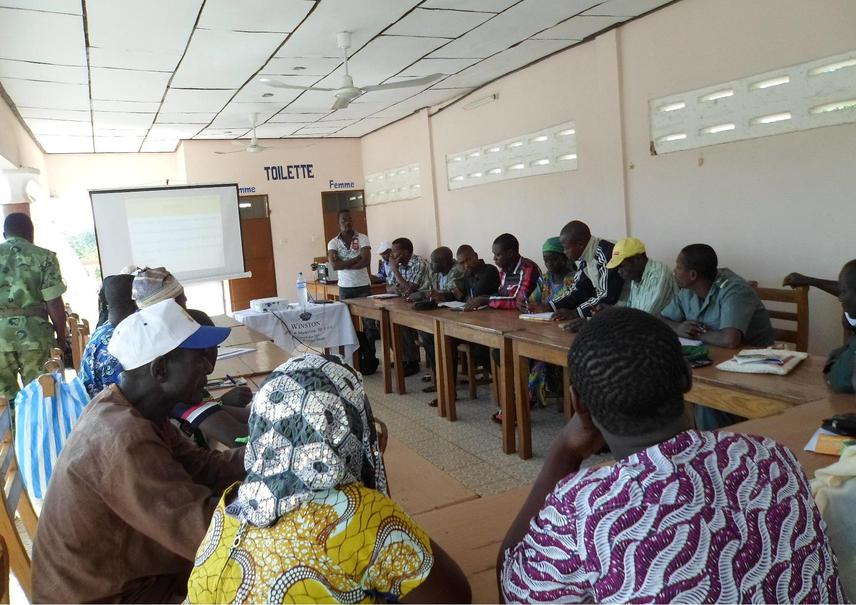Elie Antoine Padonou
Other projects
11 Jul 2016
Involving Local Community in Conservation of Termite Mounds on Bowé in Benin, West Africa
The present project is a about promoting best practice for combating bowalization by using the native species adapted on bowé and resistant to climate change

Bowal (plural bowé) is a particular form of degraded land on hardened ferruginous soils (ferricrete) found in tropical regions with unimodal precipitation. It is characterized by ferricrete exposure due to soil surface erosion. The drivers of bowé establishment in Benin are mainly deforestation. Bowalization leads to loss of biodiversity and changes in vegetation structure. The vegetation on bowé is characterized by annual herbaceous plants and trees with impeded roots growth and structural adaptions. Bowalization is predicted to persist and increase in extent in the future.
The present project aims to promote best practice for combating bowalization and adoption of conservation strategies of biodiversity using the native species adapted on bowé and resistant to climate change for ecological restoration of bowé. These species are Asparagus africanus, Andropogon pseudapricus and Combretum nigricans in the semiarid climate zone in Benin, and Asparagus africanus, Detarium microcarpum and Lannea microcarpa in the sub-humid climate zone in Benin.
We will:
(i) produce fact sheets, practical manual and posters on the best practice for combating bowalization and adoption of conservation strategies of biodiversity to politicians, technicians working in ministries, land use departments, institutions in charge of environmental policies, local NGOs, local training institutions, local decision makers, local associations and local communities on the basis of the scientific publications on bowé
(ii) the support materials will be used during fieldwork, training workshops and meetings with local communities, associations, NGOs, local and regional authorities. Observation and farmers’ field school will be assessed for the degree to which they restore bowé and conserve biodiversity.
The results of the observation and farmers’ field school will be presented during training workshops and meetings towards farmers and local institution. Exchange experiences with the farmers and local institution will allow building the framework of observed restoration strategies of bowé. This will help participants to jointly develop priorities for management, conservation and future research. Outputs of the workshop will allow us to develop and implement several sensitizations on best practices for restoration strategies of bowé. Moreover we will do a lobbying based on our results to facilitate the inclusion of certain indigenous soil restoration practices in laws, decision making on soil conservation strategies and policies in Benin.